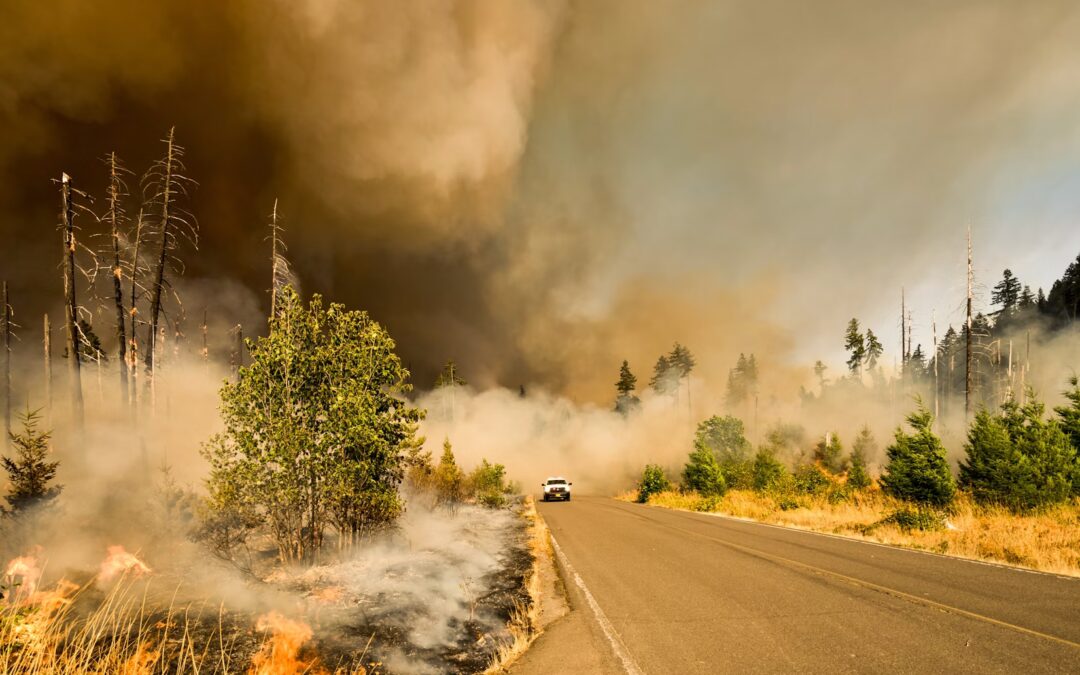May has arrived in a burst of green. The forests are vibrant, the air is full of birdsong, and the longer, warmer days are calling us to head outdoors and reconnect with nature. It’s a season of incredible life and renewal. But as the landscape dries under the strengthening sun, it’s also the beginning of a season of immense risk: wildfire season.
For the animals who live in our forests, the threat of a major wildfire is the greatest challenge they will face. While fire is a natural part of many ecosystems, the intensity and speed of modern fires can be devastating, and it’s a stark reminder that our actions have a direct impact on the safety and survival of our wild neighbours.
A World Turned Upside Down
When a wildfire rips through a landscape, the immediate danger is obvious. Larger animals like bears and deer may be able to flee, but for the very young, the slow-moving, or those defending a nest, escape is often impossible. The smoke itself can cause severe respiratory distress, disorienting animals and making them more vulnerable.
The challenges, however, continue long after the flames are extinguished. The aftermath of a severe fire is a landscape stripped of its essentials.
- Loss of Home and Shelter: A burned forest offers no cover. Trees with nesting cavities, logs used as dens, and the thick undergrowth that hides fawns and other young animals are gone. This leaves survivors dangerously exposed to predators and the elements.
- A Vanishing Food Supply: The fire consumes the berries, seeds, plants, and insects that form the base of the entire food web. For herbivores, the food is gone. This scarcity creates a ripple effect of hunger that impacts every creature in the ecosystem, from mice to cougars.
- Contaminated Waterways: With the first heavy rain, ash and soil run into streams and rivers, choking them with sediment and pollutants. This can be lethal for fish and amphibians and taints the only available drinking water for other animals.
Our Responsibility: Prevention is the Best Protection
The most difficult truth is that a significant number of wildfires are started by people. This means that prevention is the most powerful tool we have to protect our forests and the wildlife within them. As we plan our long weekend camping trips and summer adventures, let’s all commit to being champions of fire safety.
- Master the Campfire: Never leave a fire unattended, even for a moment. Before leaving a site or going to bed, douse the fire with plenty of water. Remember the rule: Soak it, stir it, and soak it again until the ashes are cool to the touch.
- Be Smart with Vehicles: An ATV or vehicle’s hot exhaust system can easily ignite dry grass. Never park on flammable vegetation. Ensure tow chains are secured so they don’t drag and create sparks.
- Dispose of Cigarettes Responsibly: Always use a portable ashtray or dispose of cigarette butts in a proper receptacle. Never toss one from a car window.
- Respect All Fire Bans: Fire bans are not suggestions; they are critical measures put in place when the risk is high. Always check for and strictly obey local fire restrictions.
This May, as we embrace the beauty of our wild spaces, let’s also embrace our role as their guardians. Every careful action we take helps ensure that our forests remain a safe and vibrant home for all creatures.

